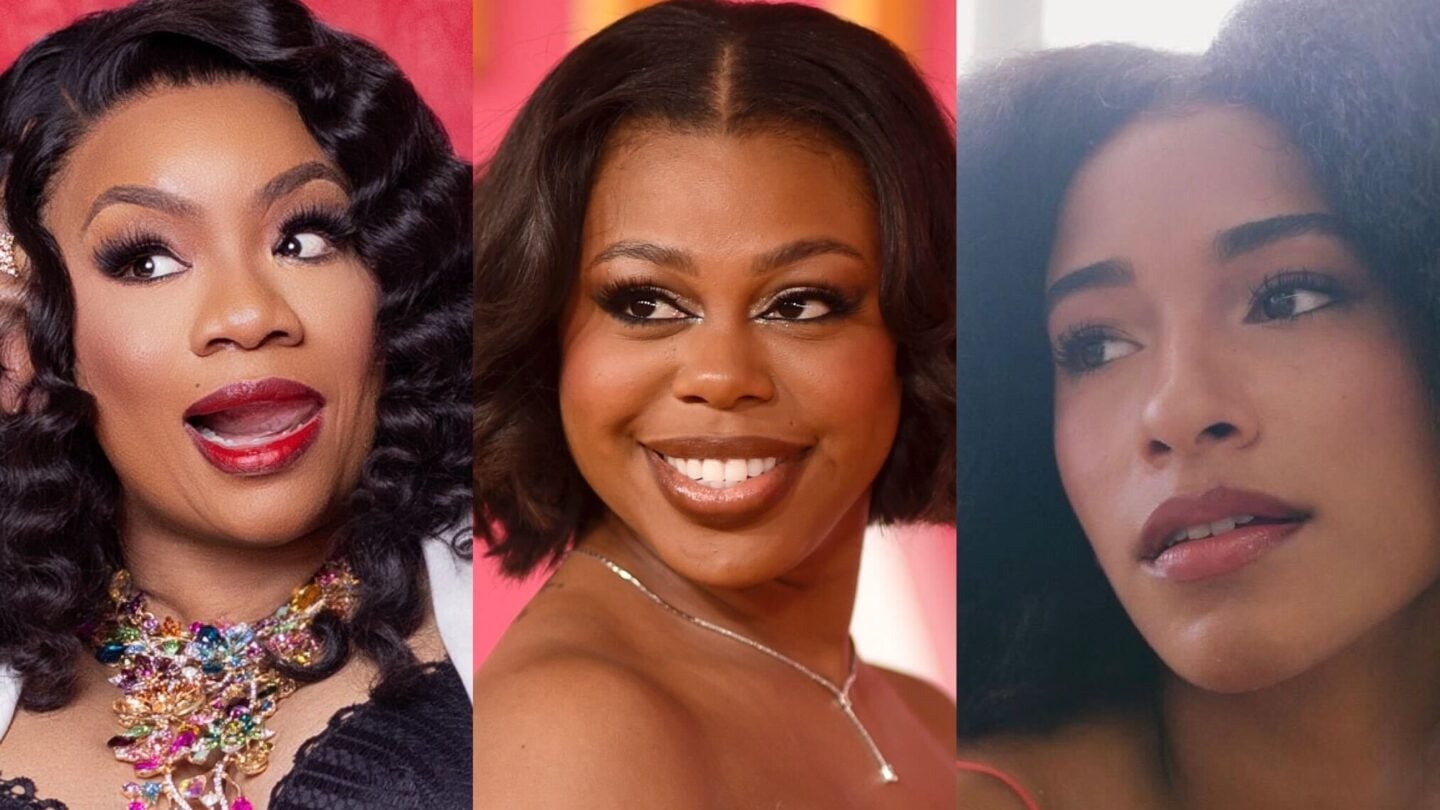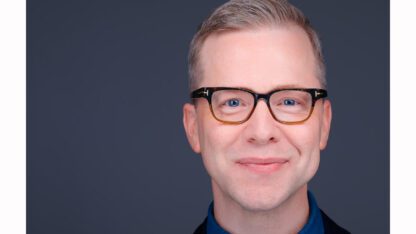Although the hit BET+ series “The Ms. Pat Show” is set in Indiana, its titular star says that she would not have allowed filming anywhere other than Atlanta.
“This is where I was born and raised at,” said Patricia “Ms. Pat” Williams, a 22-year standup comedy veteran and West End native. “This is what I manifested.”
The Emmy-nominated series is based on her comedy and life story. Ms. Pat plays a suburban mother who experiences a culture shock after relocating to a conservative, majority-white town in Indiana.
“So I had never, ever like, lived around white people … [and] I mean, I was shocked, I was like, what the hell, they go to church all the time … you supposed to tip the trashman and the mailman,” she said.
For many of her fans and industry professionals alike, Ms. Pat is a pioneer in Georgia’s television industry.
Her scripted series is the only one of its kind filmed before a live studio audience in Atlanta. It’s garnered both acclaim and controversy for its explicit language and raw commentary on race, domestic violence, drug addiction and abuse.
The series has been a cathartic experience for the comedian. The episode “Don’t Touch My Hair” focuses on the beauty standards of Black women.
“When I was a little girl, my mom used to always call me nappy-headed,” she said. “I remember as a little Black girl, I would wrap a towel on my head and play like I was blonde because nobody ever called them nappy-headed. And my mama watched a lot of white TV, so that was the only representation that she had. I believe that she thought white was right.”
The rawness of the show’s writing and acting, as well as her commitment to sharing stories from her past, is why she believes it has become so popular amongst her Atlanta fans and a national audience.
“Real recognize real … [and] I think people really appreciate a woman being honest because they always trying to make us perfect,” said Ms. Pat, who also hosts the BET+ court series “Ms. Pat Settles It.”
“My work ethic, I know I got if from the city. I know that I can outwork any person in any state, in any country, on any continent.”
Gail Bean, Actress
Aside from authenticity in front of the camera, she has also made an effort to employ as many Black crew members as possible, particularly Black women, behind the camera.
“Every year, we talk about finding [more] Black women to direct,” she said, noting that Debbie Allen, Kim Fields, Tasha Smith and Raven Symone have all directed episodes in the series. “And if I find a Black woman behind a camera, I will find her ass baby and say, ‘Come on over to The Ms. Pat Show.”
‘A rarity’
It was the sea of Black talent and crew members located in Atlanta that was most surprising to Los Angeles native Ava Mone’t, who plays the lead female role in the BET+ series “Perimeter,” which filmed its four-episode first season in the city.
When she first arrived on the set, “That was so surreal to me,” the actress remembered. She called the experience a “breath of fresh air” compared to projects in LA, where she is often one of the few Black women on set.
“Sometimes there will be some [production assistants] that are people of color or Black, but in terms of these higher positions or actors, it’s a rarity,” she said. “It’s insane because you think, kind of all that we’ve been through in terms of civil rights and social change, that it would not be that way.”
In the 1990s period drama “Perimeter,” produced by Tyler Perry Studios, Mone’t plays a Spelman student who “comes from a great family… has a good head on her shoulders, but somehow she managed to date a bad boy.”
The series delves into race relations, class issues, HBCU life and Black love — a genre the actress said is seldom shown onscreen.
Mone’t said she relished the opportunity to portray the fashions and music of the early 1990s and to shine a spotlight on HBCU culture and the city’s overall growth at the time.
She noted that Atlanta was the main character in the sense that there was this omnipresence of Atlanta.
“During that time, stuff was booming,” she said. “Music was booming, media was booming, business was booming, and as the city moves up, I felt like it was bringing its people with them.”
‘A small drop in a large ocean’
Gail Bean is a Stephenson High School and Valdosta State University graduate. In the early 2010s, she left Georgia shortly after graduating to pursue her acting career in Los Angeles, citing limited opportunities in Atlanta at the time.
According to the Stone Mountain native, only a handful of television and film projects were actively in production, and most relied on actors out of state to perform lead and supporting roles.
“And if I find a Black woman behind a camera, I will find her ass baby, and say ‘come on over to The Ms. Pat Show.'”
Ms. Pat, Actress/ Comedian
“Everything was trickling down to impactful but smaller roles,” she said. “I felt that in Atlanta, a large opportunity would still be a small drop in the ocean of the scale of what I wanted, as opposed to a small opportunity in L.A., which could be a major game changer in my career — which it was.”
Now, her career has had a full-circle moment, with the actress frequently returning to Atlanta to work on a variety of projects, such as the hit Starz series “P-Valley” and “The Piano Lesson,” a Denzel Washington-produced film.
Bean credits the city’s “hustle mentality” with shaping her drive for success and her need “to always want more.”
“My work ethic, I know I got it from the city. I know that I can outwork any person in any state, in any country, on any continent,” she said.
The actress says that she brings a little bit of her life experiences growing up in Atlanta into each of her characters, including “P-Valley’s” Roulette, a young stripper learning the ropes of her new career.
“I was happy to bring … a lot of essence of Atlanta into Roulette without making the voice Atlanta,” said Bean, noting that while the series is set in Jackson, Mississippi, the show’s fictional Pynk Club borrows a lot from Atlanta’s strip club culture.
“I really tapped into a lot of young Gail, as far as the emotions, the wall up, the lack of vulnerability, the attitude. She’s just a lot of me.”
While Bean is proud of the progress that has taken place in Atlanta’s film industry, particularly the commitment to telling Black stories and providing jobs for her community, she notes that the city still has a way to go.
“In every industry from music to athletes, people do look to Atlanta,” she noted. “There’s a phrase ‘Atlanta influences everything,’ but nobody really gives us our credit. And OutKast said a long time ago, ‘The South’s got something to say.'”









